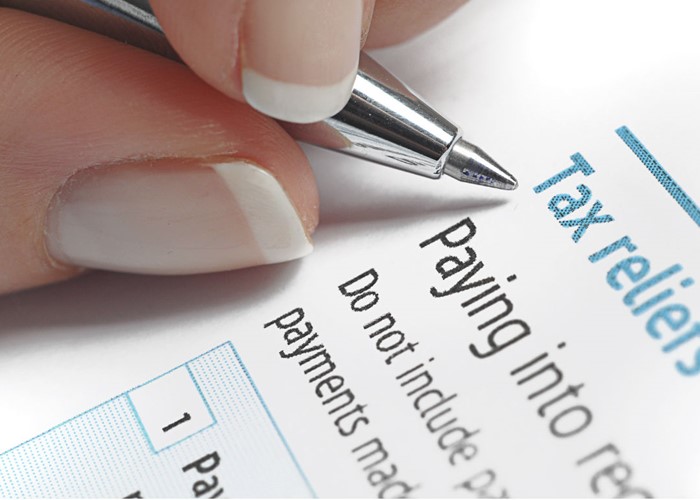HMRC targets Avon reps and Ann Summers party hosts for unpaid tax

The taxman is taking on various groups of direct sellers in a bid to reclaim unpaid tax.
When she was at University, my wife used to be an Avon representative. Every weekend she’d spend a couple of hours trawling around her neighbourhood, keeping the residents supplied with all manner of eyeliner, mascara, nail varnish and the like.
It wasn’t exactly a big earner, but just a few pounds to help cover the costs of her studies. However, it’s sales reps like my wife that the taxman is now targeting, with HM Revenue & Customs (HMRC) suggesting the ‘direct selling’ industry is one area of the economy likely to have a high number of missing tax returns.
It’s not just Avon reps of course. Those who hold Ann Summers or ‘Jamie at Home’ parties will also be under scrutiny – anyone who earns money from selling goods direct to others, or the commission from those sales, will be under the taxman’s watchful gaze.
HMRC isn’t limiting itself to direct sellers either. It’s also launched a campaign cracking down on home improvement traders: roofers, window fitters, bricklayers, carpenters and joiners. This follows similar campaigns aimed at plumbers and electricians.
And finally, HMRC is targeting a third strand – those taxpayers who have failed to complete tax returns and are liable to pay tax at the highest rates.
Getting your tax return in
It’s the people who have not filed their tax returns that HMRC is targeting first.
The deadline for self-assessment tax returns passed at the beginning of the month, so if you still haven’t filed yours, you are in line for at least a £100 fine, irrespective of whether you actually owe any tax or not.
For a guide to what you will have to pay, and the reasons HMRC will accept for late returns, check out What to do if you haven’t filed your tax return yet.
How the taxman is cracking down
HMRC has made sure it's emphasising that it will be utilising technology in its attempts to nab anyone not paying their full tax liabilities.
But what does that actually mean?
Well, mainly it means making use of the internet. The taxman will be searching the web for information about specified, targeted people and businesses. That information will then be cross-referenced with returns sent to HMRC.
If HMRC decides that something is amiss, you can then expect a visit from the taxman.
Admitting your mistakes
If you have made money from direct selling or home improvement trading and haven’t paid the right amount of tax, don’t panic – you can at least limit the damage. In the words of HMRC, if you come forward you will be given the “chance to put [your] affairs in order on the best possible terms”.
That basically means that the penalties you will face for any errors in the past will be a lot smaller if you admit them yourself, rather than waiting for a knock on the door from the inspectors at Revenue & Customs.
Indeed, if you do keep quiet there’s the possibility that you may end up facing a criminal investigation.
Since the campaign aimed at plumbers was launched, nearly 600 people have come forward to notify HMRC of their intention to declare unpaid tax worth more than £4 million. Ten plumbers have been arrested, with more than 1,000 civil cases prepared.
If you want to come forward and voluntarily disclose, call 0845 601 5041.
More campaigns to come
The taxman isn’t finished though. There are two more campaigns to be launched before the end of the tax year.
The first will be targeting e-marketplaces – those who use sites like eBay to buy and sell goods as a trade or business, but don’t pay the tax owed. HMRC made sure to point out that those who only sell a few items here and there and are not traders are unlikely to be targeted.
The second campaign will be focused on electricians. The success of the plumbers campaign has convinced HMRC to focus on a specific group of tradespeople again.
A targeted approach
HMRC has enjoyed some success with this targeted approach thus far, picking out specific areas of the economy where tax revenues are believed to be slipping through their fingers.
Inevitably though, there will be some criticism that the sums recovered are relatively small. The £4 million from plumbers, for example, is small change in the grand scheme of things, particularly when HMRC is accused of a ‘cosy’ relationship with big businesses, such as the deal with Vodafone which saw the mobile network’s tax bill of around £7 billion waived.
What do you think? Is HMRC right to conduct these small, targeted campaigns at individuals? Let us know your views via the comment box below!
More: How to pay less tax | How to call 0845 and 0870 numbers for free
Comments
Be the first to comment
Do you want to comment on this article? You need to be signed in for this feature